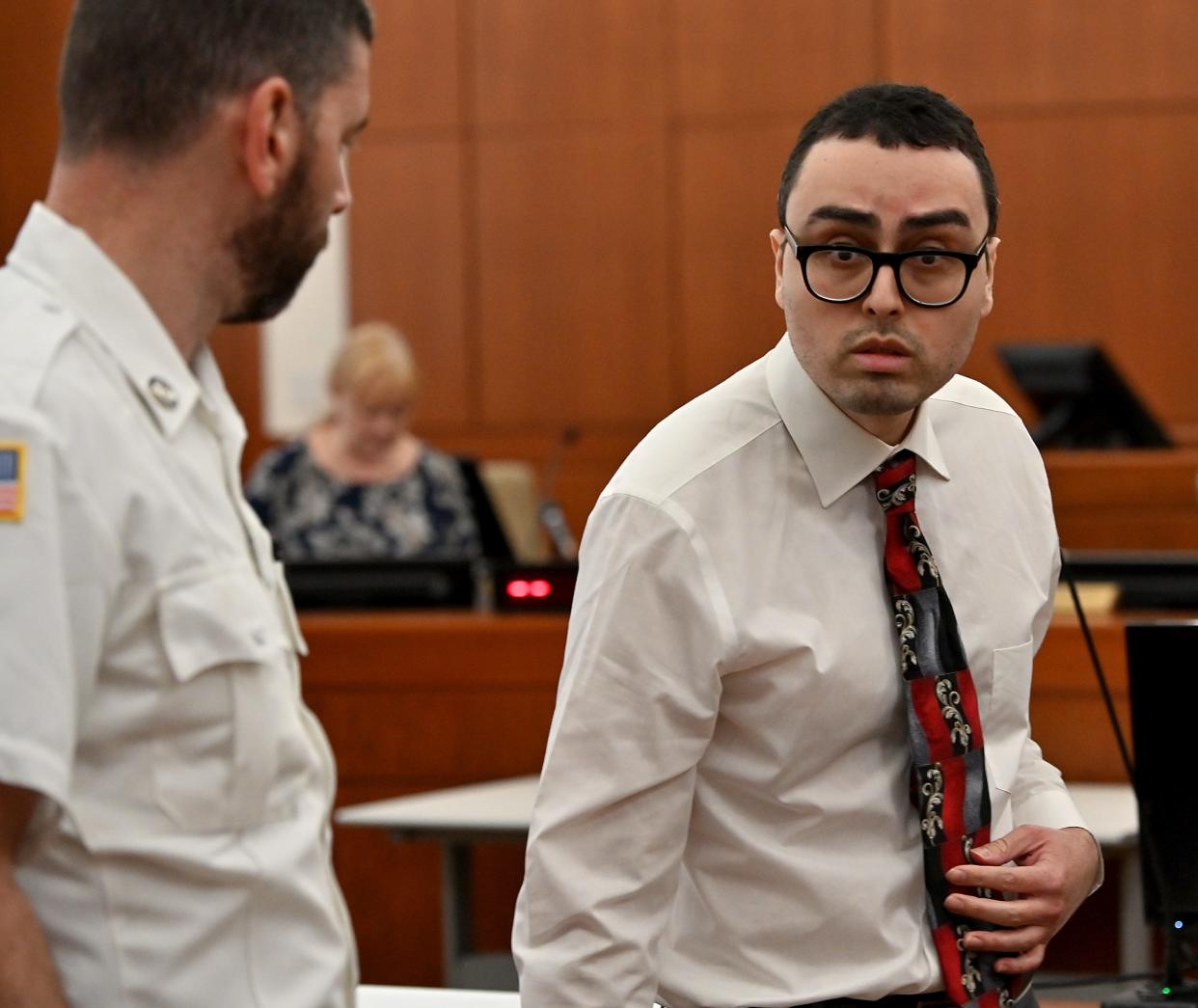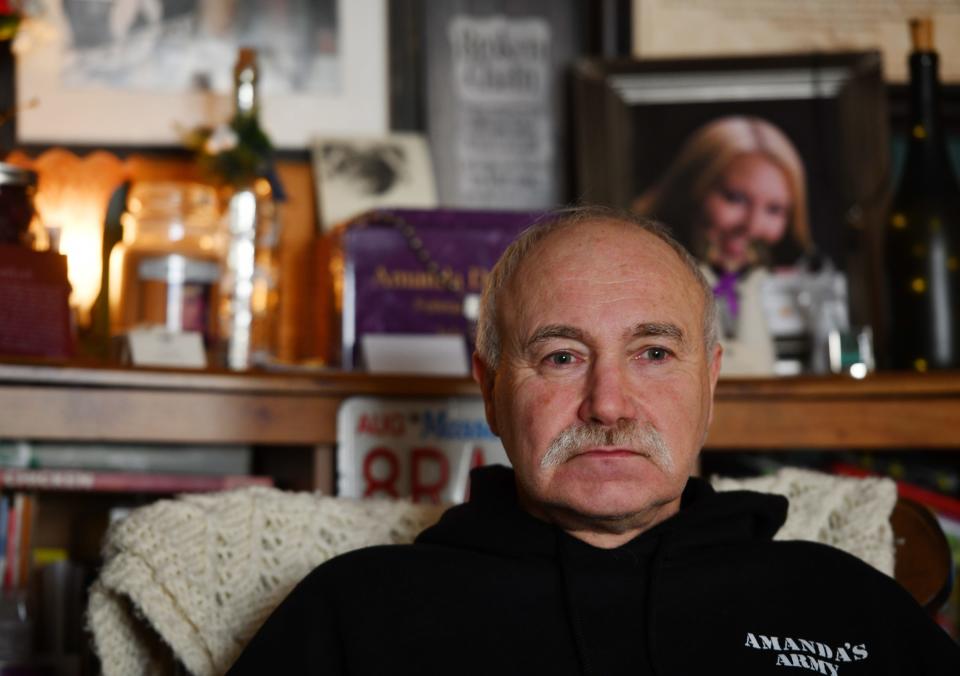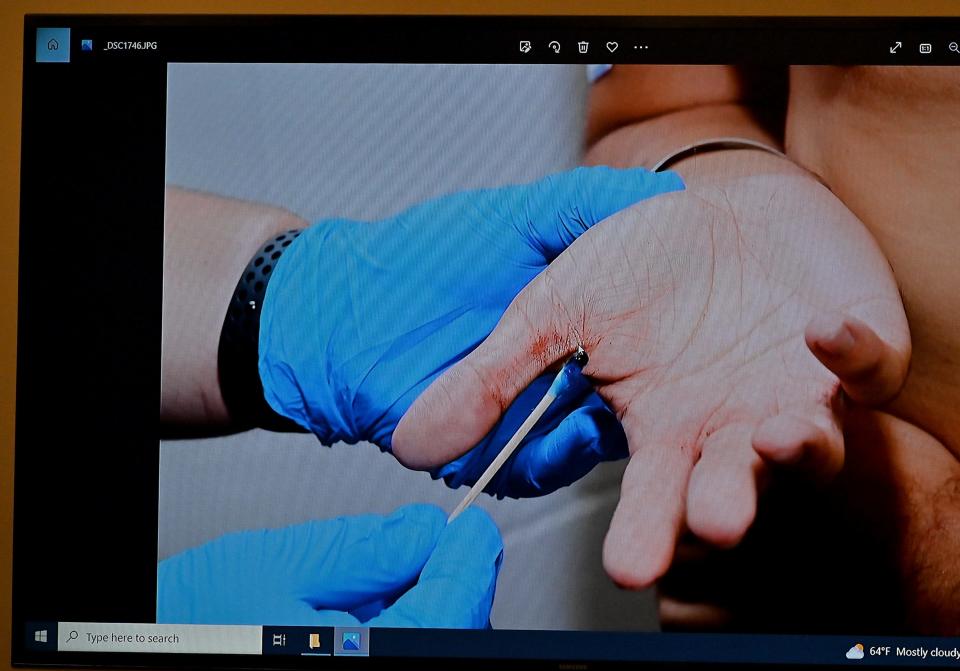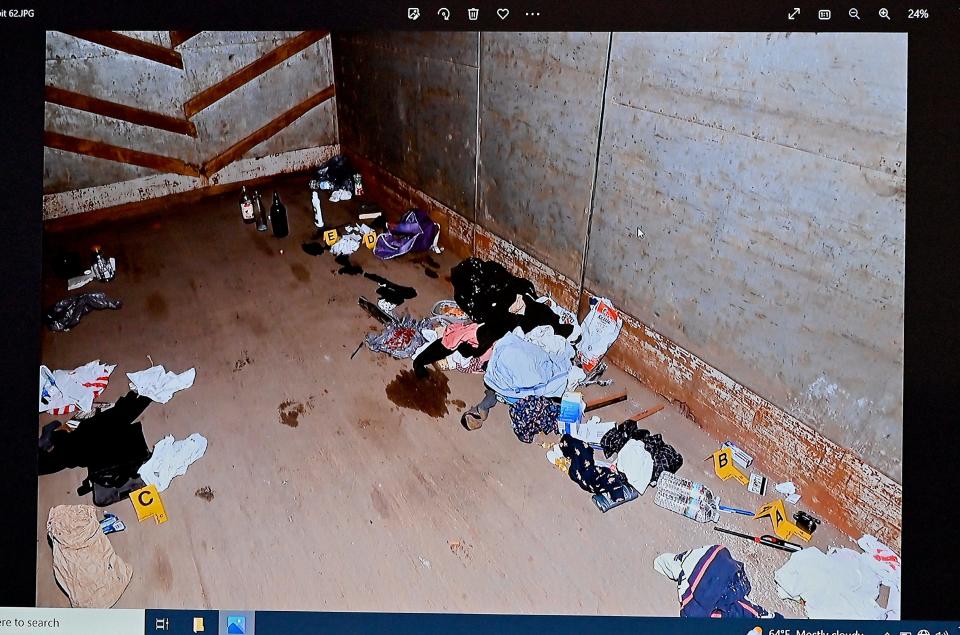Father of Amanda Dabrowski testifies to finding phone taped underneath her SUV

WORCESTER — The father of Amanda Dabrowski, the 31-year-old microbiologist who was fatally stabbed by Carlos Asencio at a city bar in 2019, testified Wednesday about finding a phone taped underneath her SUV that prosecutors say Asencio used to track her.
Edward Dabrowski of Webster, a retired Commerce (later Mapfre) insurance employee of nearly 40 years, testified that he spotted the phone the morning of July 5, 2019, two days after Amanda Dabrowski, his eldest daughter, was killed.
Dabrowski said he had just tended to Amanda’s Great Dane, Gus, and was walking up his driveway when he spotted the phone duct taped to the rear of her SUV.
The vehicle, a 2011 Chevrolet Equinox, had been dropped off at his home by another family member the prior evening, he said.

Prosecutors Monday said they recovered Asencio’s fingerprints from duct tape on the phone, as well as evidence he affixed it there and used it to track Dabrowski to O'Connor’s Restaurant & Bar.
They allege Asencio wanted revenge against Dabrowski, who ended a brief relationship they’d started after meeting at work.
Asencio, who was caught on video and by witnesses after brutally stabbing Dabrowski nearly 60 times at O’Connor’s, is pleading the insanity defense.
In his testimony Wednesday, Edward Dabrowski said he and his wife called 911 immediately after spotting the phone, and that police arrived within five minutes.
Dabrowski also testified that he learned from his daughter at a Boston Bruins game they attended in March 2019 that she and Asencio had broken up.
Asencio’s lawyer, as has been his custom for most of the witnesses at the trial, did not cross-examine Dabrowski. Asencio looked toward his yellow legal pad and scribbled notes as Dabrowski testified.
Worcester police officer Jeffrey Fanion showed jurors photos he took of the cellphone taped to the SUV from multiple angles, and entered both the phone and the duct tape into evidence.

The photos showed the phone had been taped horizontally to the rear bumper area of the car, with a small portion of the bottom of the phone visible, along with duct tape.
Amanda Soucey, a latent print expert for the Worcester police, testified Wednesday that she found three of Asencio’s fingerprints on the duct tape.
The prosecution said in opening statements Monday that evidence showed Asencio tracked the location of the cellphone taped to the car using another cellphone.
Prosecutors spent considerable time Wednesday calling law enforcement witnesses and a Google employee to introduce digital evidence pertaining to the phones' usage and location.
A formerly homeless couple who had been on the streets with Asencio in the 24 hours preceding the killing have testified that he told them just before he left for O’Connor’s that he’d been “invited” to dinner there.

Asencio, formerly depressed, seemed excited, they said, fixating over whether there was a dress code and what to wear.
Prosecutors Wednesday entered into evidence the clothing Asencio picked out – a blue striped shirt and light blue jeans – as well as a box of roofing nails they said they recovered from possessions he left with the couple.
On Thursday, the case shifted to the defense, with a psychologist testifying that Asencio suffered from severe mental illness at the time of the attack.
Dr. Paul Zeizel told the court that Asencio reported hearing voices commanding him to kill Dabrowksi in the days preceding the attack, and that he believed its public nature pointed toward a person who wasn’t thinking rationally.
Assistant District Attorney Edward Karcasinas pointed out that Asencio made no such contemporary statements to a mental health professional he began seeing in April 2019.
This article originally appeared on Telegram & Gazette: Carlos Asencio used cellphone taped to car to track Amanda Dabrowski

